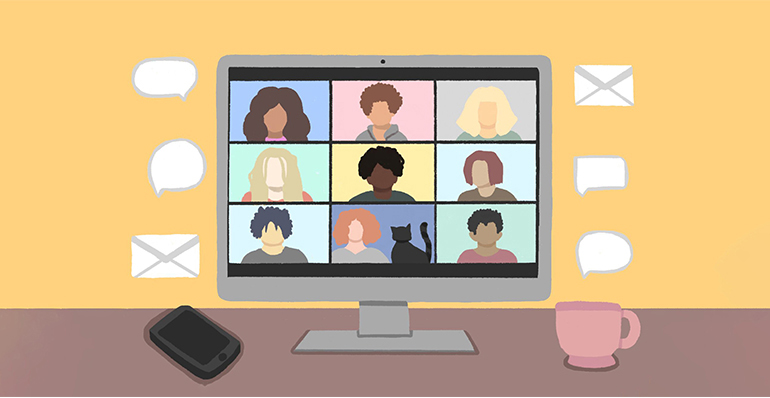You’ve got mail: Navigating online friendships in isolation

Transitioning from high school to university is a monumental task at the best of times, but the abrupt transition to online-only events this year poses a new array of challenges for students — and their mental health.
Making friends will not be the same this year, as classes, clubs and social events run mostly online, and virtual friendships can be hard to maintain.
Despite the challenges of Zoom meet-and-greets and virtual rallies, two Western University health professionals believe that making genuine connections is still achievable.
“Human beings have an inherent need to belong, that is, to feel connected with others,” Nerida Koert van der Linden, a second-year health promotion PhD student studying social media use during the pandemic. “Online friendships can be more numerous and convenient, and might actually allow people to be more open and honest than they might be in person.”
But, online friendships also risk leaving some people in the dust. As introverts are well aware, it is sometimes easier to open Netflix than to attend an online event when everything is online.
“[Those with] lower well-being ... might be the very people who distance themselves from online interactions,” Michael Blair Evans, assistant professor of psychology, says. “It is a worry that people might fall through the cracks.”
It’s not too late if students missed the boat for joining new groups during OWeek’s virtual events and the University Students’ Council clubs week — events are hosted throughout the year and it’s never too late to join a club.
“[There is] potential to build virtual friendships, but don’t overlook groups that students naturally form,” Evans says.
Not only do friendships help strengthen students’ sense of community, but they also give them a place to seek support and help sustain their identity, contributing to greater overall well-being.
But students shouldn’t solely focus on pursuing online friendships this school year.
“Social media interactions might increase the number of ‘friendships’ made, but not necessarily the quality of these connections,” Koert van der Linden writes. “Some research also suggests that using social media exclusively to interact with existing friends may cause friendships to weaken … individuals [must] maintain some degree of face-to-face contact.”
Attending in-person events, if students are comfortable, could be beneficial to their sense of community. Despite masks and social distancing, there is still the potential to make healthy connections.
“Floor meetings, community socials and residence-wide programming provide opportunities for students to connect with their communities and expand their social network,” Melissa White, acting director of Housing and Ancillary Services writes in an email. “[E]vents will be offered year-long by Residents’ Councils and Residence staff with the intention of developing a sense of community, engaging students socially, and forming virtual friendships.”
“I would encourage students to remain as open-minded as possible when meeting friends online, to reach out to other students and to join as many orientation sessions as possible,” Koert van der Linden writes.
She also speculates that the shared experience of COVID-19 could offer students a rare bonding opportunity before the ice-breakers even begin.
“The unique shared experiences of these students … could also promote a distinct sense of ‘groupness’ and ‘belonging’ in this cohort that could differ from that of students in any other year,” Koert van der Linden writes.

